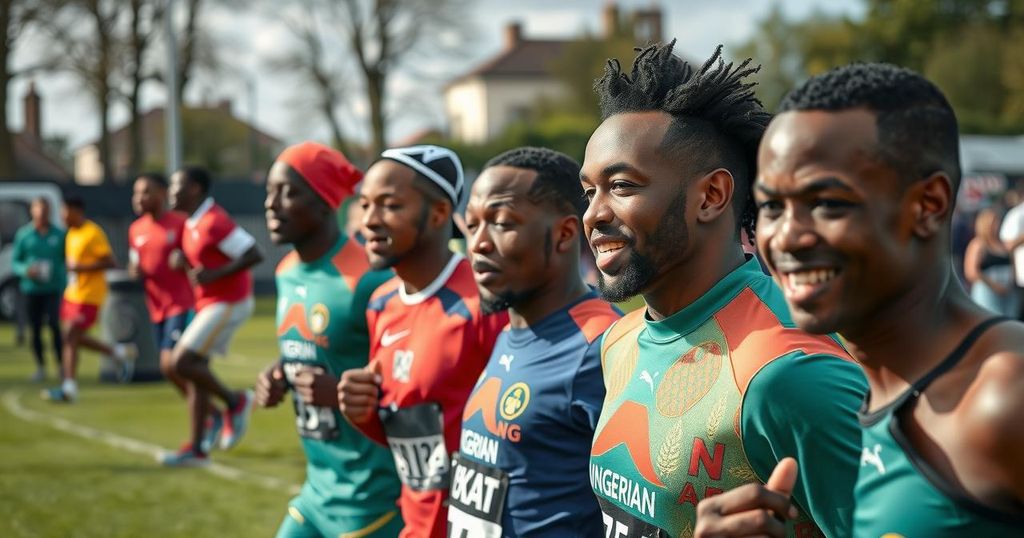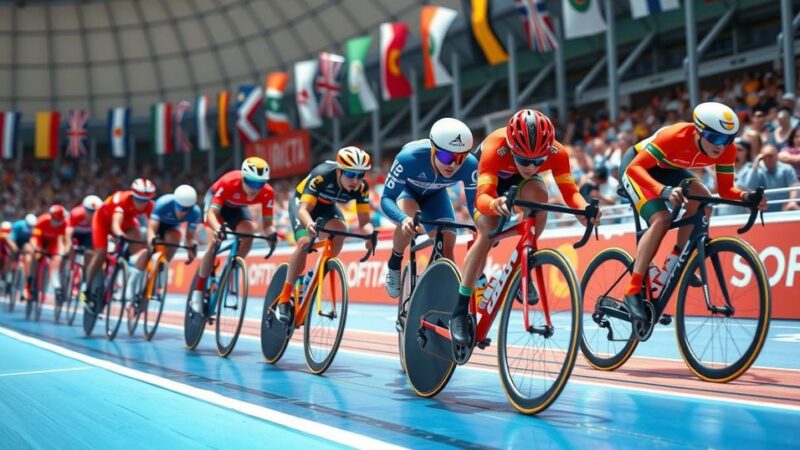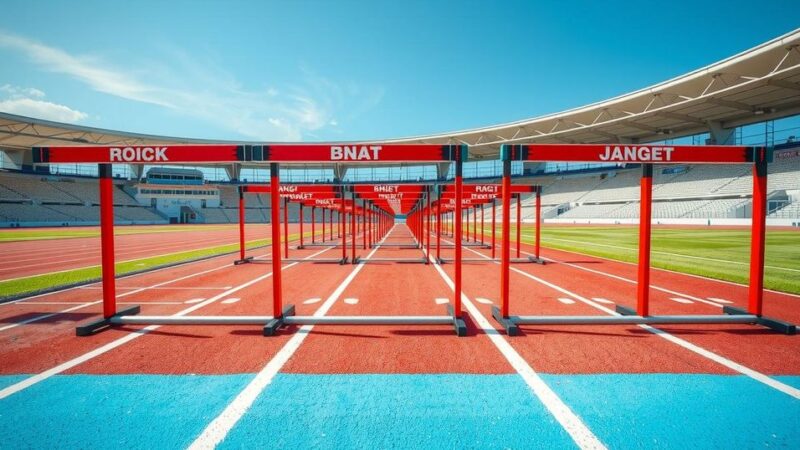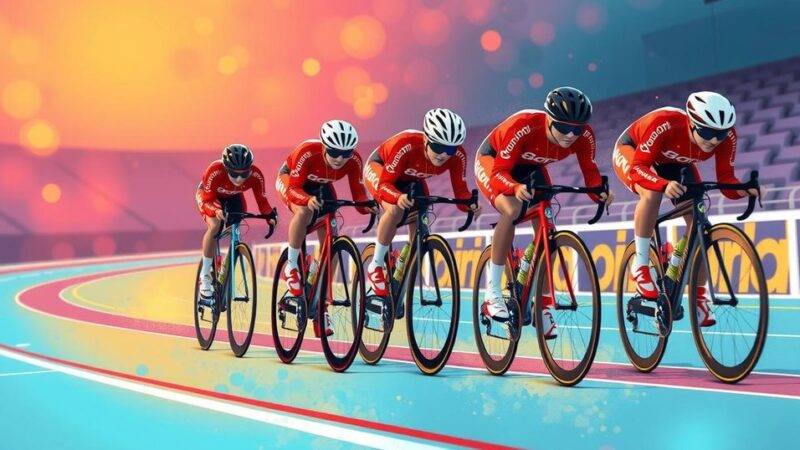The Ozo running club, based in London and comprised mainly of Nigerians of Igbo descent, seeks to strengthen cultural ties and community connections. Co-founded by Chibueze Odoemene, the club has rapidly garnered over 300 members in a few months, demonstrating the demand for social interaction among Igbos in the diaspora. The club combines physical fitness with cultural celebration, promoting unity through traditional chants and inclusive participation across diverse backgrounds.
In London’s Hyde Park, a unique gathering takes place every Saturday morning at the Ozo running club, a community forged by Nigerians of Igbo descent. This club, co-founded by Chibueze Odoemene, Emeka Atumonyogo, and Chigo Ogbonna, aims to foster connections among young Igbo individuals while celebrating their rich cultural heritage. In less than three months, membership has surged to over 300, reflecting a growing trend of social running clubs and the innate desire for camaraderie and belonging among members.
During these weekly runs, participants do not merely focus on fitness; they also engage in a communal atmosphere enriched by cultural traditions. As Mr. Odoemene leads the group in traditional Igbo chants, the running club transcends mere exercise, transforming into a vibrant celebration of community, unity, and shared identity. This cultural melding has drawn diverse participants, including individuals from non-Igbo backgrounds, indicating an inclusive spirit within the club.
The Ozo running club serves as a crucial platform for young Igbo individuals in the UK to forge friendships, network, and reconnect with their roots, amidst a backdrop of linguistic and cultural concerns that many in the community currently face. The founders emphasize that the club is open to all, regardless of ethnic background, as they aim to share and educate others on Igbo culture. Despite the club’s joyful environment, it exists in contrast to a historical narrative colored by stereotypes and grievances stemming from events like the Biafran War.
Members aspire for greater recognition of Igbo culture, often overshadowed by other Nigerian ethnicities, particularly the Yoruba. The club not only meets for runs but also organizes various social events, further fostering community ties beyond physical activities. Each gathering strengthens bonds, as participants build friendships and create lasting memories within a supportive environment rooted in cultural pride.
The Ozo running club, formed by a group of Nigerian Igbos in London, addresses the growing need for cultural connection and community among young members of this ethnic group. As one of Nigeria’s largest ethnic cohorts, the Igbos face challenges regarding cultural preservation and representation, particularly in the diasporic context. This movement towards establishing social running clubs is concurrent with a larger trend globally, wherein individuals seek to create communal spaces that reflect their identities and shared experiences. The club’s founders and participants express both an eagerness to maintain cultural heritage and a desire to provide an inclusive space where individuals can bond, regardless of their ethnic background. The context of migration, demographic changes, and historical narratives surrounding the Igbos further enrich the significance of this community initiative.
The Ozo running club in London represents more than just a physical activity; it is a vital forum for cultural expression, community building, and the strengthening of Igbo identity among its members. As it embraces inclusivity while fostering a sense of belonging, the club illustrates the power of shared heritage in a multicultural society. The commitment to celebrate Igbo culture, while also welcoming individuals from various backgrounds, highlights the potential for unity and camaraderie within diversity. The club’s activities and events continue to reinforce relationships rooted in mutual respect and cultural pride, ensuring that the legacy of the Igbo lineage thrives amidst contemporary challenges.
Original Source: www.bbc.com






